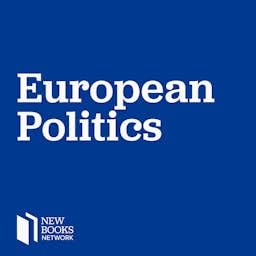In 2009, the body of a former president of the Republic of Cyprus, Tassos Papadopoulos, was stolen from his grave. The Time of the Cannibals reconsiders this history and the public discourse on it to reconsider how we think about conspiracy theory, and specifically, what it means to understand conspiracy theories “in context.” The months after Papadopoulos’s body was stolen saw intense public speculation in Cyprus, including widespread expressions of sacrilege, along with many false accusations against Cypriots and foreigners positioned as his political antagonists. Davis delves into the public discourse on conspiracy theory in Cyprus that flourished in the aftermath, tracing theories about the grave robbery to theories about the division of Cyprus some thirty-five years earlier, and both to longer histories of imperial and colonial violence. Along the way, Davis explores cross-contextual connections among Cyprus and other locales, in the form of conspiracy theories as well as political theologies regarding the dead bodies of political leaders. Through critical close readings of academic and journalistic approaches to conspiracy theory, Davis shows that conspiracy theory as an analytic object fails to sustain comparative analysis, and defies any general theory of conspiracy theory. What these approaches accomplish instead, she argues, is the perpetuation of ethnocentrism in the guise of contextualization. The Time of the Cannibals: On Conspiracy Theory and Context (Fordham UP, 2024) asks what better kind of contextualization this and any “case” call for, and proposes the concept of conspiracy attunement: a means of grasping the dialogic contexts in which conspiracy theories work recursively as matters of political and cultural significance in the long durée. Elizabeth Anne Davis is Professor of Anthropology at Princeton University. Her research and writing, grounded in the European horizons and the Ottoman history of the Greek-speaking world, focus on the intersections of psyche, body, history, and power. She is also the author of Bad Souls: Madness and Responsibility in Modern Greece (2012, Duke Press) and Artifactual: Forensic and Documentary Knowing (2023, Duke Press). Yadong Li is a socio-cultural anthropologist-in-training. He is registered as a PhD student at Tulane University. His research interests lie at the intersection of economic anthropology, development studies, hope studies, and ecological anthropology. More details about his scholarship and research interests can be found here. Learn more about your ad choices. Visit megaphone.fm/adchoices
Voir plus
Voir moins
 Dec 12 202542 min
Dec 12 202542 min 1 h et 21 min
1 h et 21 min 53 min
53 min 45 min
45 min 32 min
32 min Nov 25 20251 h et 31 min
Nov 25 20251 h et 31 min Nov 24 20251 h
Nov 24 20251 h Nov 18 20251 h et 6 min
Nov 18 20251 h et 6 min
